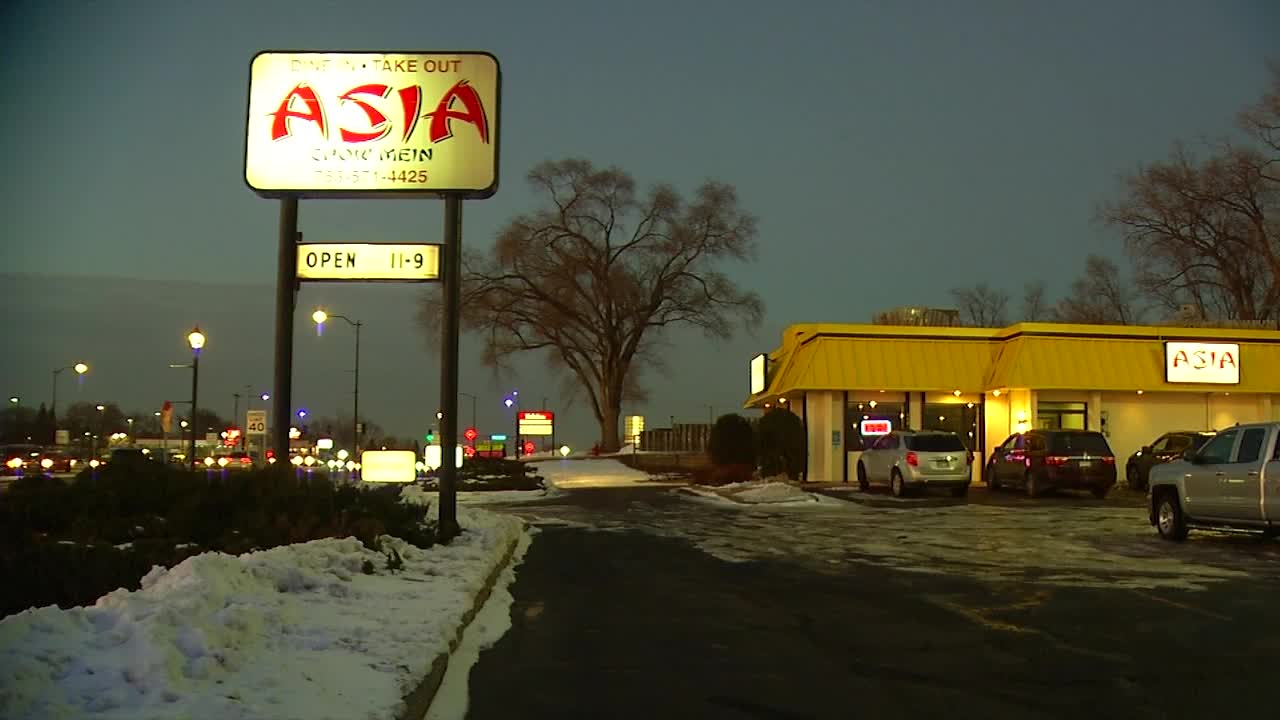“All my customers are my family.” Beloved north metro restaurant closes its doors after 50 years
[anvplayer video=”5154628″ station=”998122″]
While it might be chilly outside, inside the Asia Chow Mein restaurant, there’s a variety of sizzling sounds and wafting smells — food prep, running at full throttle.
“Their chow mein is the best,” declares Sue Kowalsky, from Blaine. “I remember as a kid in high school, getting a coupon book from here.”
“All of my customers are my family,” adds Winnie Ng, who owns the restaurant with her husband Tim. “There’s like four generations here.”
Ng supervises as many as 200 orders-to-go on any given day.
“This is hard work,” she notes. “You know, restaurants are hard work. Long day, you know.”

But for Ng and her family, this holiday season has been bittersweet.
After fifty years in Columbia Heights, the restaurant closed for good this past Friday.
“We are getting old,” Ng says. “The restaurant business is getting hard to handle more than before. You know, with short staff, everything gone high in food costs.”
Winnie, who’s 64, and Tim, 68, were ready to retire, and had planned to hand down the business to their son Wayne.
But not anymore.
“I can’t see him doing it,” Ng says. “Because it’s so hard on us, and without our help, I just don’t want this to burden him or his life.”
She explains during the pandemic, they’ve limited the business to takeout orders only.
The 14-worker staff has shrunk to just nine.
All of this, as food costs continue to rise, squeezing an already tight profit margin even more.
Ng says pre-pandemic, the restaurant never had problems replacing employees who left.
She and other staffers say that changed dramatically in recent years.
“This is hard right now to running a business, you know,” declares Windy Wong, the dining room manager. “Everything is so expensive, and there’s no way to get the kind of people to run a business.”
The Ng’s aren’t alone.
Liz Rammer, the president and CEO of the trade group ‘Hospitality Minnesota,’ says while there are signs of recovery, the state’s hospitality industry is down about 17,000 jobs from pre-pandemic levels.
“We all know there’s a workforce shortage that all industries are experiencing. So in that regard, this industry is no different,” Rammer says. “Because of the outsize impact the pandemic had on leisure and hospitality and tourism, you know it’s taking a longer time for this industry to recover.”
Rammer says there are some bright spots in the hospitality industry — she says holiday parties could boost income for some venues, but adds for others, this could be a multi-year recovery.
Ted Norgon was among a group of faithful customers parked outside to get one last order.
“Probably the consistency,” he explains. “The food is always good and they’ve been a mainstay for so many years.”
Ng says before closing, she was getting requests to ship food to places like Arizona and Miami, Florida.
She shared pictures of thank-you notes and gifts of food, wine, and flowers, sent by long-time customers.
Then finally, the restaurant’s neon ‘open’ sign was turned off for the last time.
“It’s sad,” Kowalsky says. “Here’s a family thing and they’ve been here since the 70s, fifty years, and their tradition is to give it to their family, and you can’t right now. The economy, it’s not good.”
After closing, the Ng’s and their employees gathered for a few photos and an emotional goodbye.
The family believes Wayne will remain in the restaurant business in some capacity.
But Ng says it was a hard decision to shut down a business that’s been in her family since 1972.
But the Ng’s are approaching a new chapter in their lives.
“There is happy because I don’t want my husband to keep working so hard,” Ng says quietly, through tears. “I have at least 500-600 comments on my (social media) telling me they understand why I’m leaving and wishing me luck on my retirement and all that.”